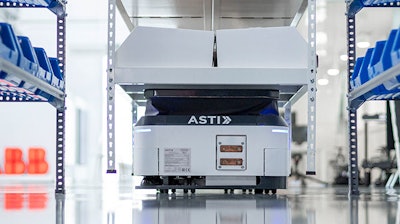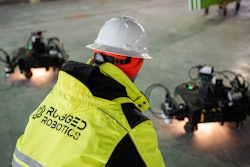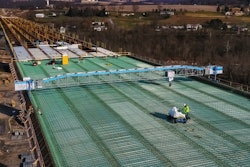
There’s a growing groundswell of support for investment in robotics in the construction industry. Around the world, we’re already seeing the potential of robots to make the industry safer and more cost-effective, improve sustainability, enhance quality and cut waste.
In a global survey commissioned by ABB earlier this year, of 1,900 large and small construction businesses in Europe, the U.S. and China, eight in 10 respondents say they would introduce robots onto their sites within the next 10 years to help address key challenges in the industry, including skills and labor shortages, the need for more affordable and environmentally-friendly housing and the ability to reduce the environmental impact of construction.
Benefits of Robotic Automation
The fact is that robotic automation offers significant potential to enhance worker safety, productivity, efficiency and manufacturing flexibility throughout the South African construction industry. However, the country is lagging the rest of the world when it comes to robotics, with practically no robots in the local construction industry at this stage.
One of the areas where robotics can have a real impact is in the industry’s ability to meet the country’s massive demand for low-cost housing, through pre-manufacturing units with flexible options and designs. In pilot projects elsewhere in the world, robots are enabling the automated assembly of walls, floors and ceilings for multi-story, multi-unit affordable housing and even producing prefabricated modular homes.
Canadian modular fabrication company Intelligent City has achieved a 10-15% saving on its total build cost using robots, with projected estimates of approximately 30% in longer term savings. This has increased production efficiency by 15% and speed by 38%, while reducing waste by 30%.
Swedish building giant Skanska’s robot welding application has improved quality, employee productivity and safety by automating the fabrication of steel reinforcement baskets on-site. This solution has also reduced the cost and environmental impact of transporting bulky finished reinforcement baskets to building sites.
Industry Challenges
One of the major challenges facing the industry at a global level is waste management, with the industry under pressure to dramatically improve its environmental footprint. According to the International Energy Agency, the industry accounts for 36% of global energy use and 39% of CO2 emissions, while buildings account for 40% of global energy use.
Together, this puts a real onus on the industry to find ways to optimize the way that it designs, constructs and manages buildings, to reduce energy use. It is estimated that up to a quarter of material transported to a building site leaves as waste. In Europe, the industry is responsible for 34.7% of the continent’s waste. Using automation and digital solutions, builders can design waste out at the beginning of a project through effective building design and construction processes.
Another ongoing challenge is ensuring the health and safety of workers. Here, robots are already making construction safer by handling large and heavy loads, working in unsafe spaces, and enabling new, safer methods of construction. Compared to building sites, controlled factory environments reduce the scope for accidents, with greater levels of protection against some of the most common sources of injuries in the construction sector such as falling from height, slips, trips and falls.
A third driver for automation in the construction industry is productivity. The automotive sector has fully embraced modern production technologies, and as a result, has improved productivity by 30% over the last few decades. Many of the techniques used in construction haven’t changed for generations. Construction companies need to reduce time on site, because if they can construct the building faster, they get paid faster, with lower overall costs. Faster completion of projects also opens the way to handle more projects, with workforces able to be utilized more effectively.
Robots also offer the ability to develop new skills in the local construction industry by improving quality and productivity methods. There’s a real opportunity to work with the country’s tertiary education institutions to develop new technologies, solutions and skills.
With so few construction businesses using automation today, there’s massive potential to transform the industry through robotics. At ABB, we’re developing new solutions to address key industry challenges. In the process, we could just help address bigger socio-economic issues. And that’s positive for everyone.
Written by Linda Eales, robotics division manager, ABB South Africa



















